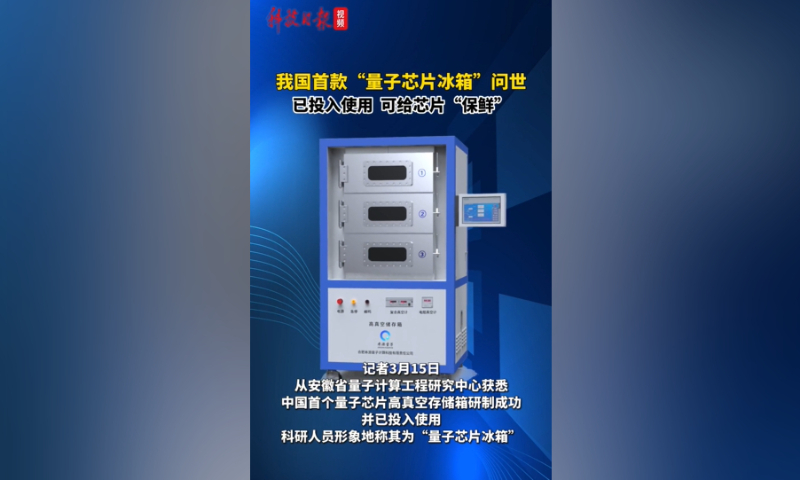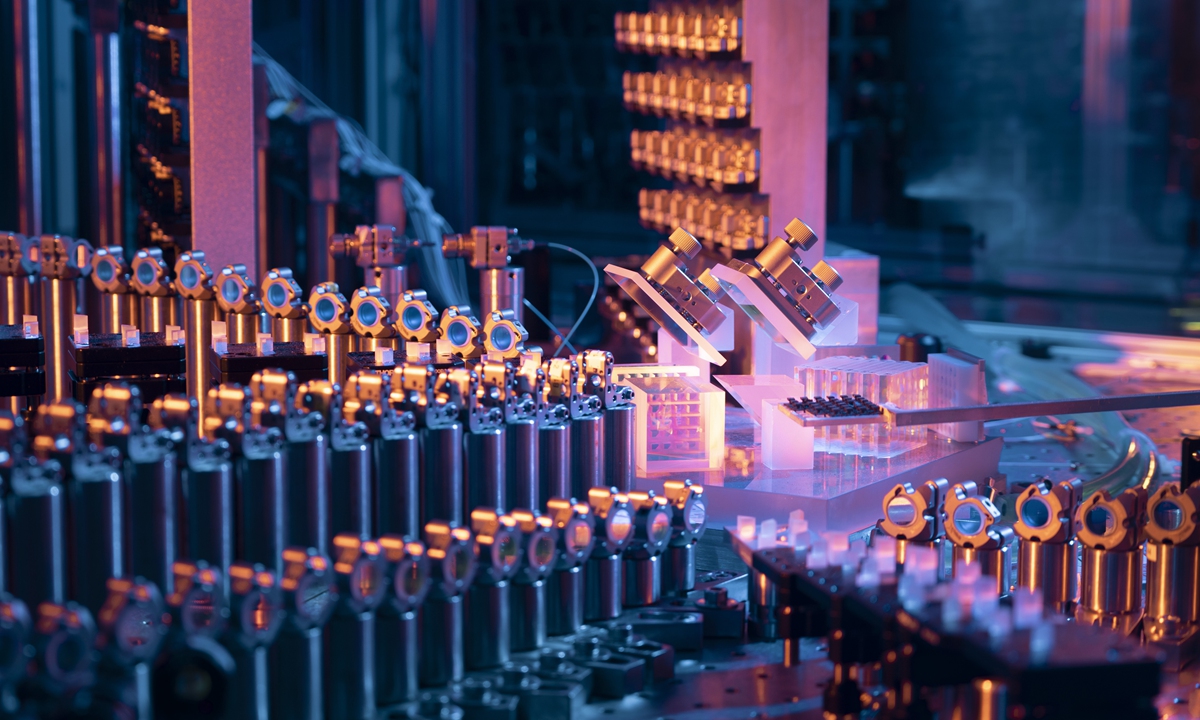China Makes the First Quantum Chip "Refrigerator"
The Chinese manufacturer Benyuan Quantum has built the first quantum chip production line in China, laying the foundation for the mass production of quantum chips in China.
Following the quantum chip production line, China has made another breakthrough in quantum technology and created a "quantum chip refrigerator".
China's first 'refrigerator' for quantum chips put into use to ...

Photo: Screenshot of video from Science and Technology Daily
China's
first "refrigerator for quantum chips" has been put into use to maintain a stable environment and enable the smooth operation of quantum
chips, scientists revealed on Wednesday.
The "refrigerator," actually a high-vacuum box, has three cavities for storage and each can be controlled separately.
A
smart system monitors the cavities in real time to maintain a high-vacuum state, according to a statement by the developer of the
device, Origin Quantum Computing Technology Co, which is based in East China's Anhui Province.
A human-computer interaction function guarantees automated operation of the device, read the statement.
The Global Times learned from Origin Quantum that compared with a classic integrated circuit, a quantum chip requires a more complicated manufacturing process. Temperatures and conditions in the chip's
environment, such as noise, vibration, electromagnetic waves and even super-small particles, would have an impact on the quantum chip.
If
the strict environmental conditions are not maintained, superconducting materials can easily react chemically with oxygen and water vapor in
the air, absorbing various impurities. As a result, the key components of the chip may fail to burn in and would not function correctly.
Scientists have compared the burn-in process with "food going bad" in the air and
dubbed the high-vacuum box as a "refrigerator for quantum chips."
Quantum chips are the "brains" of quantum computers, which use quantum
mechanics to perform certain computations far more efficiently than a regular computer.
Although the general public is mostly
unfamiliar with quantum computers and their capabilities, the Spring Festival box office hit The Wandering Earth II offered a fictional
opportunity for people to comprehend the immense computing power these machines possess.
Chinese #scientists develop #'quantum chip refrigerator' in breakthrough #china #fyp
China's Innovations That Have Sparked International Interest | Brics | China Technology
#Chinatechnology #China #chinaeconomy China's Innovations That Have Sparked International Interest | Brics | China Technology
Investigate China's various innovations, from the BRICS countries to cutting-edge technology, and understand how these have sparked an international interest. Learn about the impact China has had on the world, and how its projects have been duplicated around the globe.
Related posts:
Quantum tech for cybersecurity; Baidu launches quantum computer in China and gives people ...
China successfully launched world's first quantum communication satellite 'very exciting' !
Chinese quantum satellite to protect China from cyber attacks






